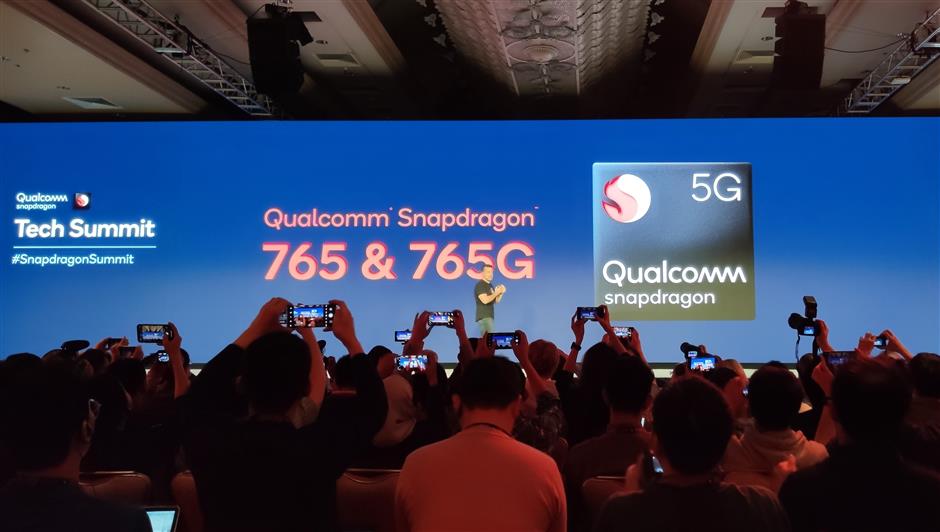Xiaomi, Oppo to use 5G chip developed by Qualcomm

Alex Katouzian, senior vice president and general manager of the mobile business unit of Qualcomm Technologies, introduces the Snapdragon 765 chip in the US on Tuesday.
Two fast-growing Chinese phone brands said on Tuesday that they will adopt Qualcomm Inc’s newest 5G chip in their flagship devices early next year.
Xiaomi Corp and Oppo said they will use Qualcomm’s Snapdragon 865 chip in devices they plan to launch in the first quarter of next year. The companies planned to announce the news at a Qualcomm conference in Hawaii.
Xiaomi and Oppo, both based in China, were the fourth and fifth biggest smartphone sellers in the world in the third quarter, according to research firm IDC. They have also become major Qualcomm customers, with both Xiaomi and Oppo’s parent group each accounting for more than 10 percent of Qualcomm’s US$24.2 billion in revenue in its most recent fiscal year. Qualcomm’s other major customers are Apple and Samsung.
The chip will include features for artificial intelligence tasks such as identifying objects in photos stored on smartphones, as well as a modem for connecting to 5G networks, which are rolling out this year and next and are expected to be much faster than current 4G networks.
Qualcomm also said its Snapdragon 765 chip, which is priced lower than its 865 chip and is often found in midpriced handsets, will include 5G connectivity in an effort to popularize the technology on lower-priced phones.
In addition to selling the computing chips and modems for mobile phones, Qualcomm has also been trying to persuade phone makers to use more of its other components, such as antenna chips for connecting to 5G networks.
To further that effort, Qualcomm on Tuesday announced it would start selling “modules” containing a number of different chips to phone makers.
The modules are intended to reduce the amount of time it takes phone brands to design a new device because Qualcomm will have already performed much of the engineering work and testing.















